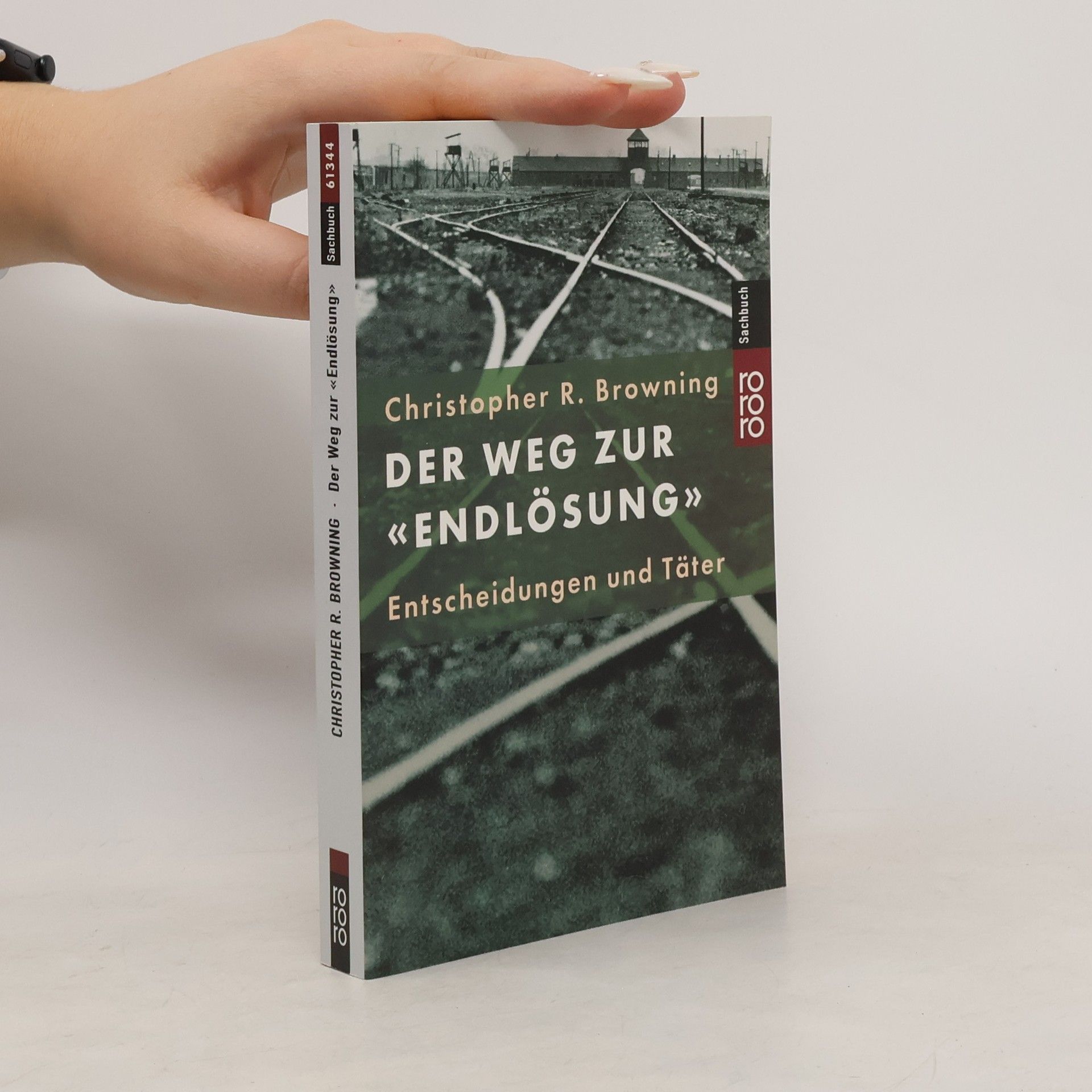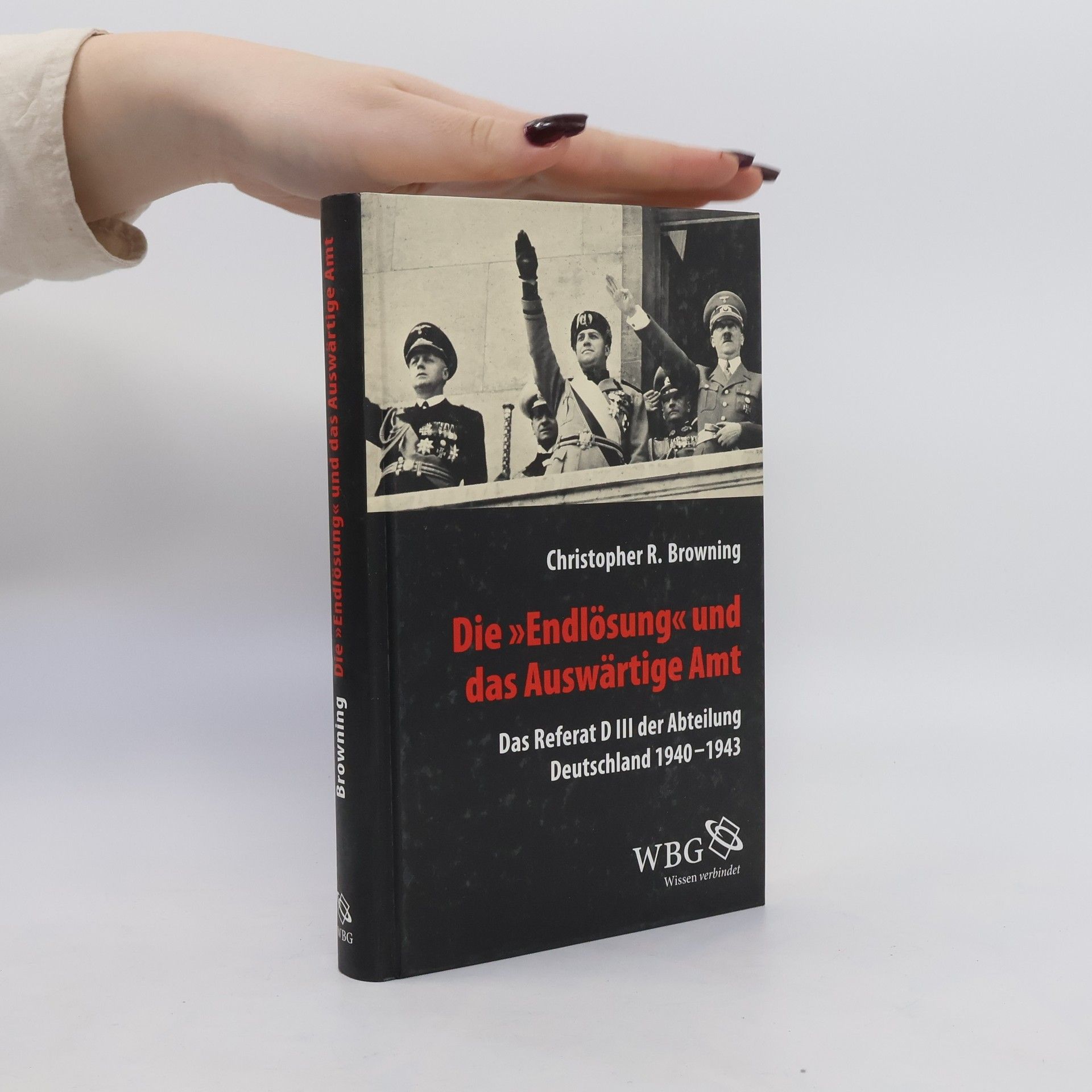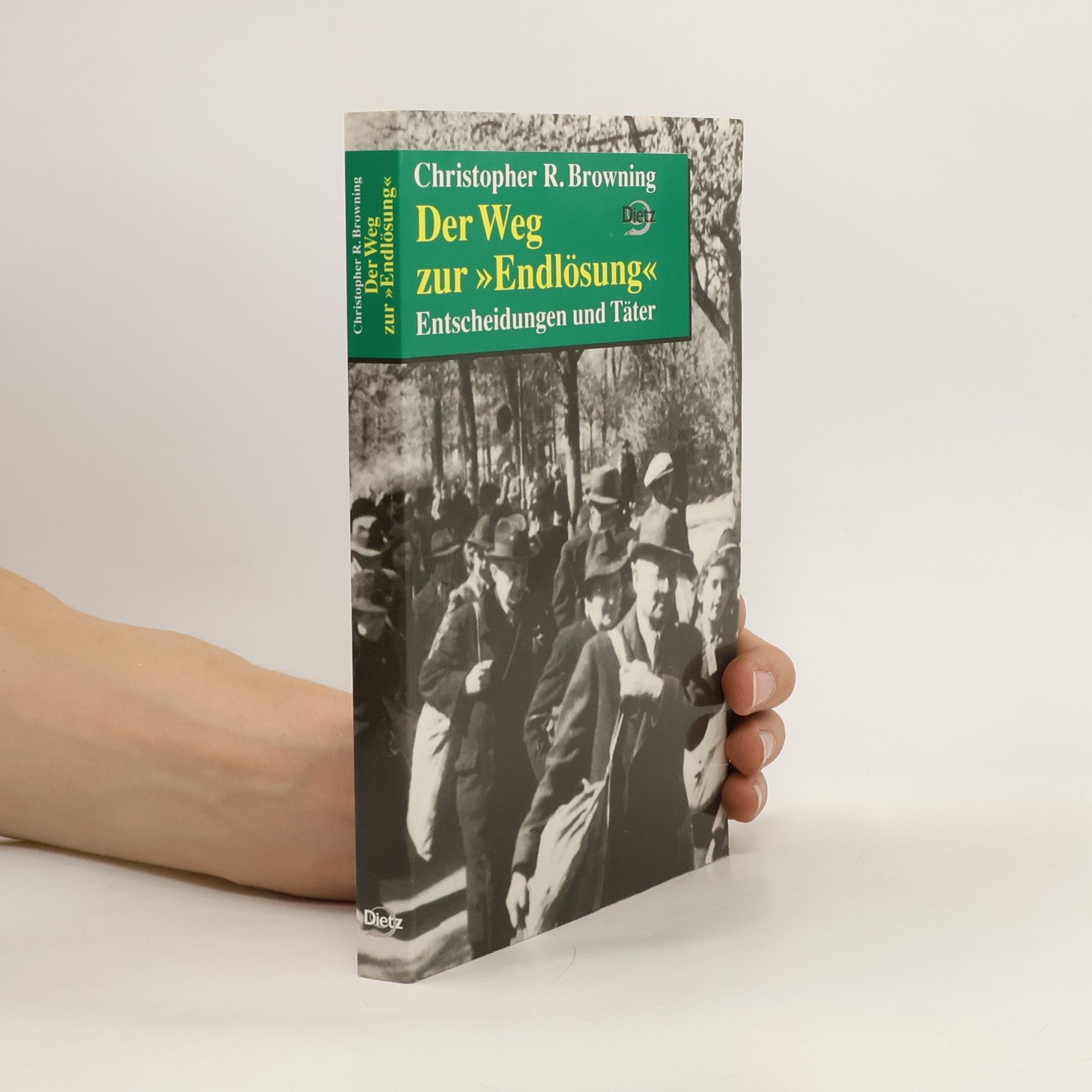"In 1939, the Nazi regime's plans for redrawing the demographic map of Eastern Europe entailed the expulsion of millions of Jews. By the fall of 1941, these plans had shifted from expulsion to systematic and total mass murder of all Jews within the Nazi grasp. This book is the most detailed and comprehensive analysis ever written of what took place during this crucial period--of how, precisely, the Nazis' racial policies evolved from persecution and "ethnic cleansing" to the Final Solution of the Holocaust. Meticulously documenting the process that led to this fatal development, Browning shows that Adolf Hitler was the key decision-maker throughout, approving major escalations in Nazi persecution of the Jews at victory-induced moments of euphoria."--Jaquette
Christopher R. Browning Livres
Christopher Robert Browning est un historien de premier plan dont l'œuvre considérable se concentre sur le nazisme et l'Holocauste. Son érudition se caractérise par une plongée profonde dans les motivations et les mentalités de ceux qui ont été complices des atrocités nazies, offrant des aperçus profonds sur la nature du mal. L'approche méthodique et la recherche méticuleuse de Browning en font une voix essentielle pour comprendre l'un des chapitres les plus sombres de l'histoire.

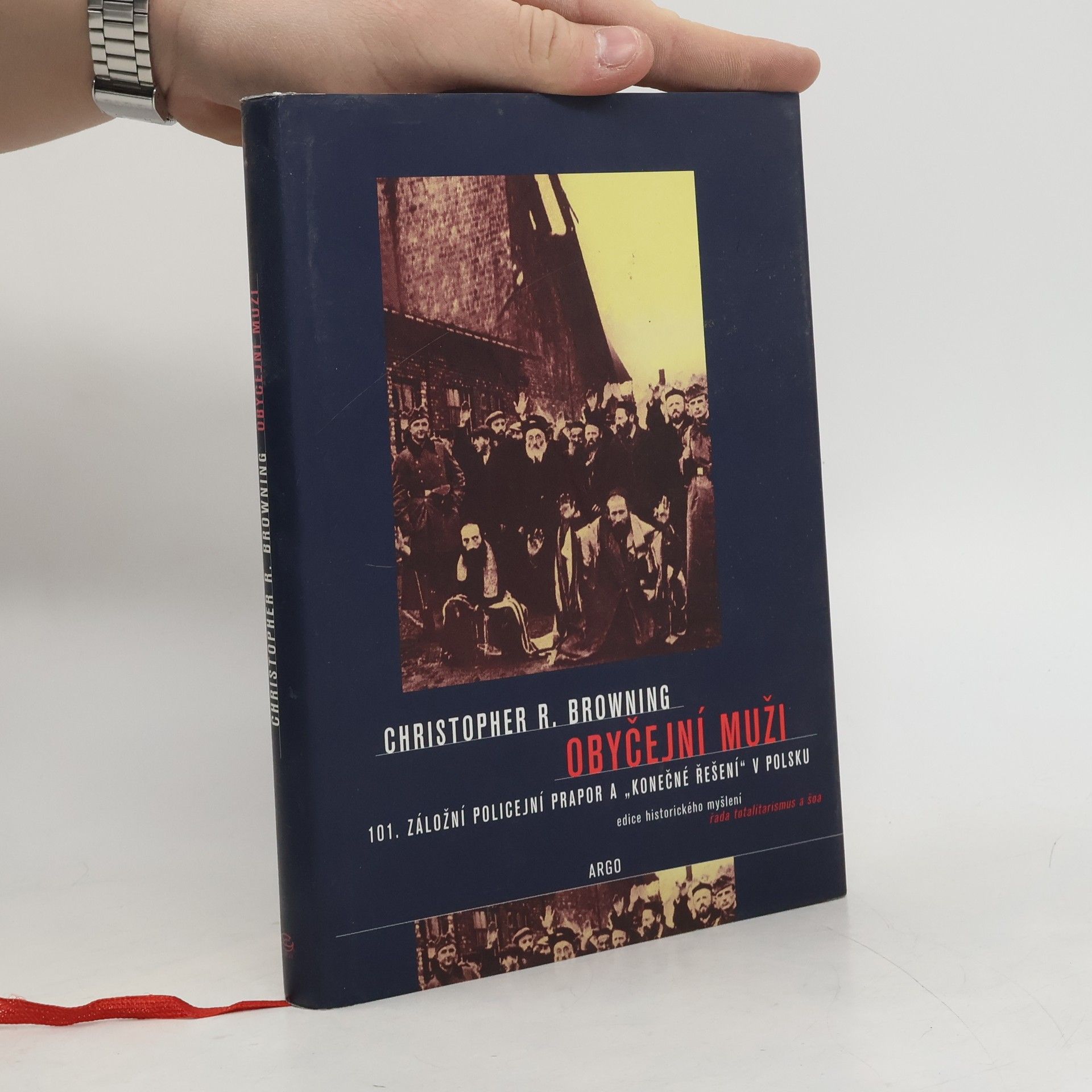


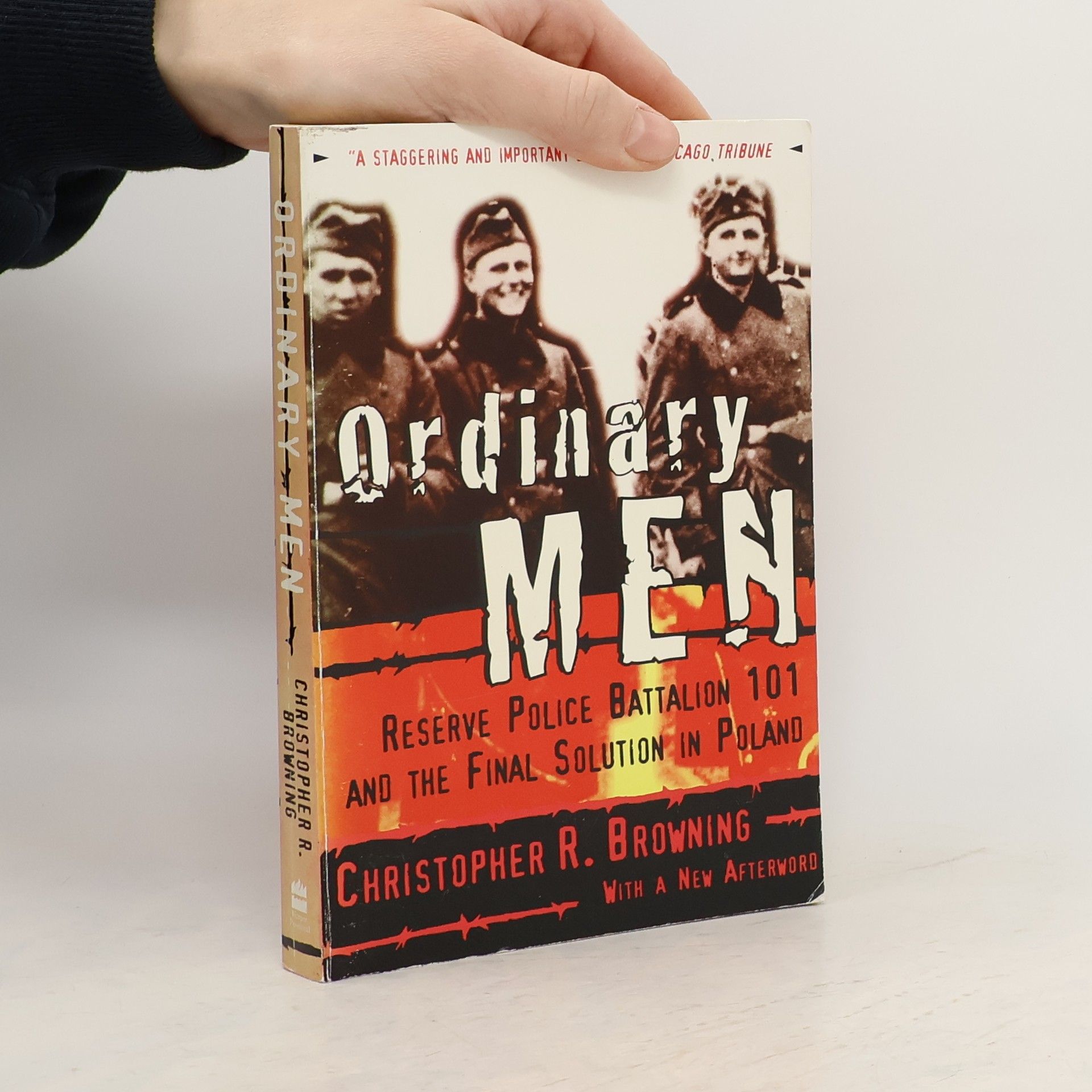


Ordinary men. Reserve police battalion 101 and the final solution in Poland
- 304pages
- 11 heures de lecture
Widely reviewed and read in hardcover, this is the shocking account of how a unit of average middle-aged Germans became the cold-blooded murderers of tens of thousands of Jews. "Browning tells us about such Germans and helps us understand . . . how they were transformed psychologically . . . into active participants in the most monstrous crime in human history".--New York Times Book Review, front page. 8 pages of photos; 2 maps.
Ordinary Men
- 304pages
- 11 heures de lecture
The shocking account of how a unit of average middle-aged Germans became the cold-blooded murderers of tens of thousands of Jews.
Today, nation branding is regarded as essential for competitiveness among countries. In academia, however, the idea is often dismissed as unserious. Bringing nation branding to the scholarly discourse, Browning critically unpacks the trend, providing theoretical lenses through which to view the role of nation brands in international politics.
The author, a first generation Jewish-American, seeks out some of the last surviving rescuers of Jewish children during the Nazi occupation of Holland to produce this collective portrait of ten heroic individuals. NOTE: AN UPDATED EDITION IS NOW AVAILABLE.
Obyčejní muži : 101. záložní policejní prapor a "konečné řešení" v Polsku
- 222pages
- 8 heures de lecture
Činnost jednoho z praporů německé pořádkové policie a jeho podíl na genocidě polských Židů za 2. světové války. Historie nasazení německých pořádkových policistů v záloze, kteří se podíleli na na deportacích a hromadném vyvražďování Židů na území Generálního gouvernementu. Dokumenty a svědecké výpovědi o jednotlivých likvidačních operacích. Otřesná fakta! Základem studie jsou výslechové protokoly dvou set příslušníků praporu, kteří byli v souvislosti s uvedenými skutky vyšetřováni na počátku 60. let. Z faktografického historického materiálu vychází autor při obecnějších uvahách na téma - historické kořeny antisemitismu a zejména okolnosti a motivy nelidského chování zdánlivě obyčejných lidí, ze kterých se stali nemilosrdní kati.
Der Weg zur 'Endlösung'. Entscheidungen und Täter
- 256pages
- 9 heures de lecture
In seiner Analyse beleuchtet der Holocaust-Forscher Christopher R. Browning die Verantwortlichen für die massiven Opferzahlen zwischen März 1942 und Februar 1943, und erläutert deren Motive und Mentalität.
Judenmord
- 283pages
- 10 heures de lecture
Nach wie vor werden in der Holocaust-Forschung zentrale Fragen kontrovers diskutiert: Wie entwickelte sich die nationalsozialistische 'Judenpolitik' in den ersten Jahren des Krieges? Zu welchem Zeitpunkt überschritt das NS-Regime die historische Trennlinie von Bevölkerungsverschiebungen und -dezimierungen ('ethnischen Säuberungen') zu einem Programm der totalen und systematischen Vernichtung? Auf welche Weise versuchten die NS-Behörden, die Vertreibungs- und Ausrottungspolitik mit der kriegsbedingten Notwendigkeit zu vereinbaren, jüdische Arbeitskraft auszubeuten? Was waren die Folgen im Alltagsleben der Zwangsarbeiter? Welchen Einfluss hatten die vielen lokalen „Machthaber“, welche Rolle spielten dem gegenüber die Vorgaben der Zentrale in Berlin? Welche neuen Erkenntnisse lassen sich über Verhalten und Motivation der Täter vor Ort gewinnen? Das Buch präsentiert - klar und verständlich formuliert - die Summe von Brownings neuen Erkenntnissen zum Mord an den europäischen Juden.
Die "Endlösung" und das Auswärtige Amt
- 320pages
- 12 heures de lecture
Christopher R. Browning ist der international wohl renommierteste Historiker zum Holocaust. Alle seine großen Arbeiten sind auch ins Deutsche übersetzt worden. Einzig seine Studie zur Verstrickung des Auswärtigen Amtes in den Holocaust wurde bisher nicht auf Deutsch vorgelegt. 1978 erstmals erschienen, ist sie bis heute die einzige monographische Darstellung zum Thema. Souverän, präzise und sprachlich gelungen zeichnet Browning hier das verbrecherische Agieren des Auswärtigen Amtes nach, vom Madagaskar-Plan über die Wannseekonferenz und den europaweiten Einsatz des Auswärtigen Amtes bis zum Fall Luthers. Auch die Karrieren der ‚Judenexperten’ nach dem Zweiten Weltkrieg werden dokumentiert. Ein Vorwort von Jürgen Matthäus (Washington) und eine Einleitung zur deutschen Ausgabe von Christopher R. Browning ordnen die Studie in die Publikationslandschaft ein.
Die nationalsozialistische Umsiedlungspolitik und die Suche nach einer "Lösung der Judenfrage" 1939-1941 -- Die nationalsozialistische Ghettoisierungspolitik in Polen 1939-1941 -- Jenseits von "Intentionalismus" und "Funktionalismus" : die Entscheidung zur "Endlösung" -- Bürokratie und Massenmord : was deutsche Verwaltungsbeamte unter "Endlösung" verstanden -- Mehr als Warschau und Lodz : der Holocaust in Polen -- Hitlers endgültige Entscheidung zur "Endlösung"? : Riegners Telegramm in neuem Licht -- Daniel Goldhagens willige Vollstrecker -- Mensch, Kultur und Holocaust.
